Developing a circular economy has been identified as one of the priority orientations to achieve the common goal of waste management, efficient use of resources, environmental protection, disaster prevention and response to climate change in the next development stage of the country.
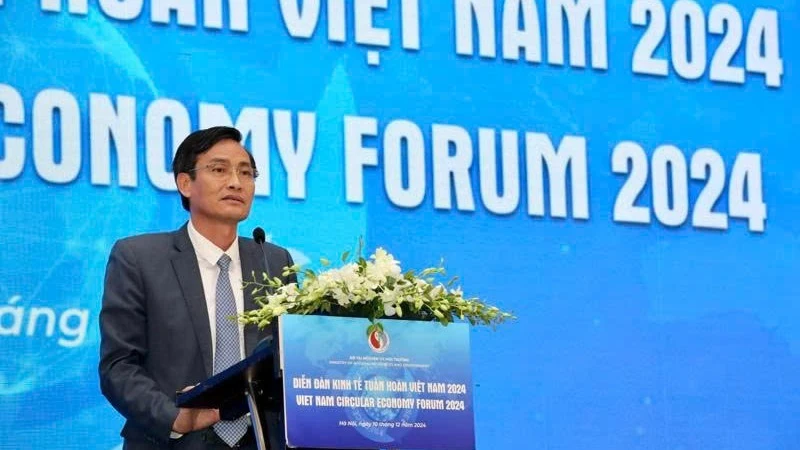 |
Deputy Minister of Natural Resources and Environment Tran Quy Kien delivered the opening speech at the Vietnam Circular Economy Forum 2024.
This was shared by Deputy Minister of Natural Resources and Environment Tran Quy Kien at the Vietnam Circular Economy Forum 2024 chaired by the Ministry of Natural Resources and Environment , the Institute of Strategy and Policy on Natural Resources and Environment (ISPONRE) and Vietnam Economic Magazine/VnEconomy in collaboration with international partners, held on December 10 in Hanoi. Vietnam proactively and actively promotes the development of a circular economy In the context of the world witnessing the severe impacts of the climate crisis and environmental pollution, at the COP29 Conference held in Baku, Azerbaijan with the theme "Solidarity for a green world", heads of state, scholars, and international organizations discussed and reached important commitments to realize the goal of sharply reducing greenhouse gas emissions and bringing net emissions to "0" by 2050. Deputy Minister Tran Quy Kien said that as an active and responsible participant in the fight against climate change, to fulfill this commitment, Vietnam proactively built and issued many policy mechanisms to promote green transformation, green growth and achieved many important results after many years of implementation. In recent years, the development of a circular economy in Vietnam has soon received the attention, direction and unified direction of the Party and State. Specifically, the Law on Environmental Protection 2020 with its legal provisions promoting the implementation of circular economy has received support and attention from ministries, branches, professional associations, business communities, cooperatives and related organizations and individuals. In addition, circular economy has been integrated into strategies, programs, projects, planning and development plans of sectors, fields and localities. The Resolution of the 13th National Party Congress has identified the development of circular economy as one of the orientations for national development in the 2021-2030 period, with a vision to 2045. |
Plenary session scene on the morning of December 10.
According to Deputy Minister Tran Quy Kien, in the past time, the Ministry of Natural Resources and Environment has presided over and coordinated with ministries and ministerial-level agencies to organize the development of a draft National Action Plan for implementing circular economy to be submitted to the Prime Minister for promulgation. The plan focuses on key groups of tasks and solutions, focusing on institutional creation, specifying regulations in the Law on Environmental Protection 2020 on the responsibilities of manufacturers and distributors; project management according to life cycle, establishing a roadmap for developing and applying environmental standards and regulations, emphasizing the promotion of cooperation to help businesses access opportunities to receive financial and technological support to implement circular economy; promoting communication to raise awareness and responsibility of the business community and people about circular economy. "Realizing the National Action Plan for the implementation of the circular economy will contribute to creating momentum for innovation and improving labor productivity; developing good practices, creating a green culture and lifestyle, while promoting green job creation and developing new value chains in the circular economy sector," Deputy Minister Tran Quy Kien affirmed. He stated that implementing the circular economy is an inter-sectoral task and the responsibility of the whole society with the participation of authorities at all levels, ministries, branches, localities, organizations and individuals. In particular, the State plays a role in creating resources such as finance, research, application development, technology transfer and equipment production, resource training, providing information platforms, data on the circular economy for domestic enterprises..., creating space, motivation and conditions for the process of transformation and application of the circular economy model. Organizations and individuals are the driving force leading the implementation of the circular economy. In particular, businesses play a pioneering role in innovating business models, aiming to form a more circular value chain. Promoting innovation will contribute to realizing a circular economy in Vietnam, creating a foundation to harmoniously resolve the relationship between the economy and the environment, between humans and nature in the new context. Transition to a circular economy requires a comprehensive approach Speaking at the plenary session, Ms. Ramla Khalidi, Resident Representative of the United Nations Development Programme (UNDP), said that to accelerate the transition to a circular economy, Vietnam needs to prioritize four main paths. First, it is necessary to integrate ecological design into policies. Evidence-based policies are the "key" to supporting the transition to a circular economy. |
Ms. Ramla Khalidi, Resident Representative of the United Nations Development Programme (UNDP), speaking.
Today, Vietnam can lead the innovation agenda by embedding eco-design in its circular economy roadmap, setting measurable targets for recycled content, product longevity and energy efficiency. Such measures would not only align Vietnam with global sustainability standards, but also boost its competitiveness. Second, key sectors need to be prioritized for integrating circular activities. According to the UNDP representative, Vietnam’s growth is closely linked to international trade and policies such as the European Union’s “Carbon Border Adjustment Mechanism” could impact export-oriented sectors such as aquaculture, coffee production and fruit growing. However, many businesses are still not fully prepared to meet such stringent environmental standards. This is where the transformative power of circular economy activities can make a difference, giving some sectors a competitive advantage. “Vietnam should prioritize sectors that are closely linked to trade. Sectors such as agriculture , electronics, plastics, textiles and construction materials. By prioritizing these sectors, Vietnam can align with international standards, opening up opportunities for sustainable growth and long-term resilience,” said Ms. Ramla Khalidi. Third, circular transformation should be integrated into existing institutional reforms. In the context of a circular economy, streamlining governance frameworks and regulatory processes is key. For example, simplifying procedures for reusing treated wastewater and addressing the cost gap between virgin and recycled plastics can open up opportunities. This requires coordinated efforts across ministries. Effective institutions and sound governance structures can enhance cross-sectoral collaboration, reduce bureaucratic barriers and create an environment that fosters innovation – essential drivers of a circular economy. Fourth, the transition to a circular economy is a whole-of-society effort. Ms. Ramla Khalidi said that Vietnam must continue to put people and social justice at the center of the circular transition to ensure that this process is both equitable and inclusive. Vietnam must also continue to create opportunities for multi-sectoral and multi-stakeholder dialogues, promoting the participation and ownership of the whole society. With the theme "Promoting a circular economy in Vietnam - From Planning to Action", the Vietnam Circular Economy Forum 2024 includes 1 Plenary Session and 3 Specialized Workshops. Thereby, it reflects the overall picture of orientations, policy mechanisms as well as the current status and innovative solutions to promote circular economic development in Vietnam; the role of the private sector in implementing a circular economy. At the Forum, domestic and international partners discussed the path to a circular economy and ways to promote a circular economy in Vietnam, contributing to making Vietnam a pioneer country in the ASEAN region to establish a comprehensive institutional and legal framework for the circular economy. In the afternoon, the Forum continued to be divided into 3 thematic sessions focusing on the following contents: (i) Designing towards a circular economy (alternative materials); (ii) Sustainable production and consumption (reuse, refill, services, digital tools, markets, etc.) and (iii) Turning waste into resources (classification and recycling). Source: https://nhandan.vn/viet-nam-uu-tien-phat-trien-kinh-te-tuan-hoan-de-thuc-hien-muc-tieu-chung-ve-phat-trien-ben-vung-post849564.html



![[Photo] Many young people patiently lined up under the hot sun to receive a special supplement from Nhan Dan Newspaper.](https://vphoto.vietnam.vn/thumb/1200x675/vietnam/resource/IMAGE/2025/5/18/6f19d322f9364f0ebb6fbfe9377842d3)
![[Photo] Ready for the top competitions of Vietnamese table tennis](https://vphoto.vietnam.vn/thumb/1200x675/vietnam/resource/IMAGE/2025/5/18/9c547c497c5a4ade8f98c8e7d44f5a41)

![[Photo] Party and State leaders attend the special art program "You are Ho Chi Minh"](https://vphoto.vietnam.vn/thumb/1200x675/vietnam/resource/IMAGE/2025/5/18/6895913f94fd4c51aa4564ab14c3f250)
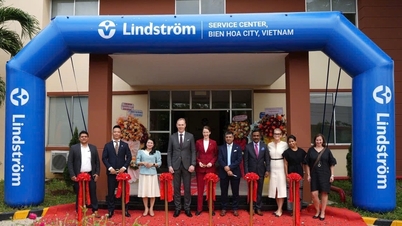

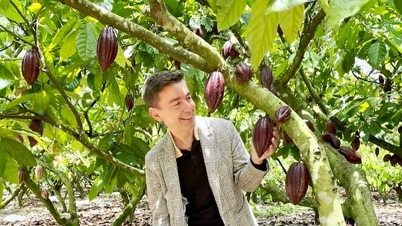






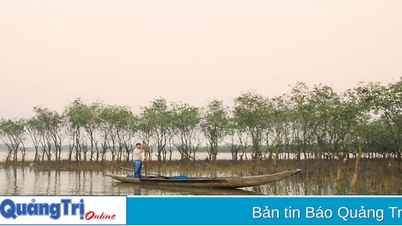
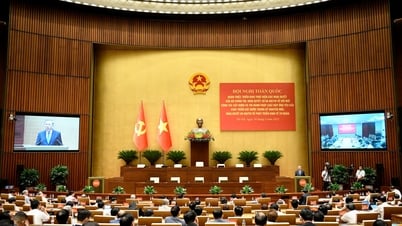






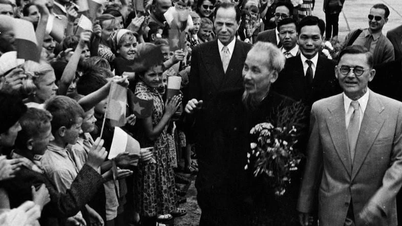

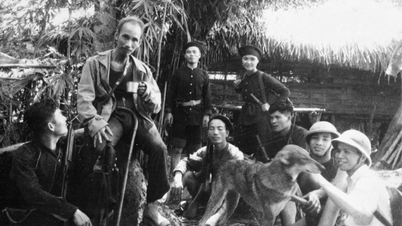





![[Photo] Party and State leaders attend the special art program "You are Ho Chi Minh"](https://vphoto.vietnam.vn/thumb/402x226/vietnam/resource/IMAGE/2025/5/18/6895913f94fd4c51aa4564ab14c3f250)
![[Photo] Walking on the royal poinciana flower road in the West](https://vphoto.vietnam.vn/thumb/402x226/vietnam/resource/IMAGE/2025/5/18/f9335355d0744d1593f7e36bc4c7f4b7)
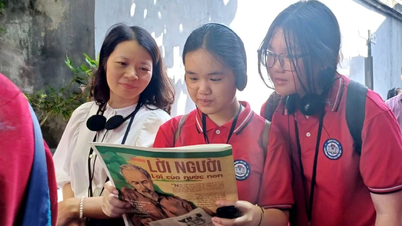

![[Infographic] Achievements of Vietnamese students at the 2025 International Science and Engineering Fair](https://vphoto.vietnam.vn/thumb/402x226/vietnam/resource/IMAGE/2025/5/18/67c3dbcf40744d06bf8164f789fcdc5c)













































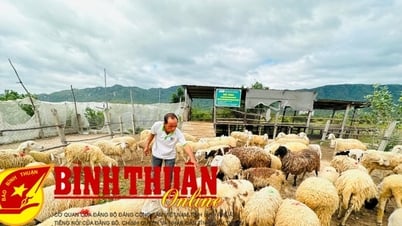


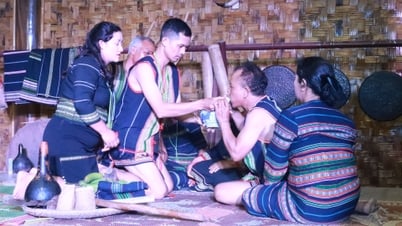

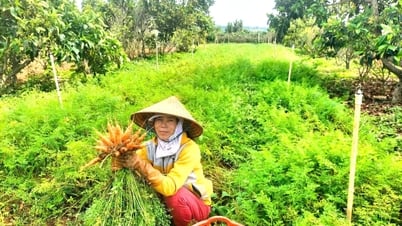
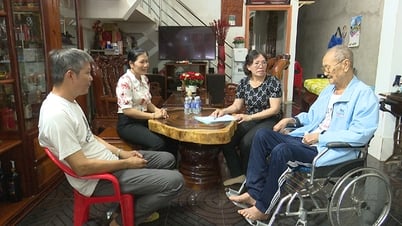









Comment (0)